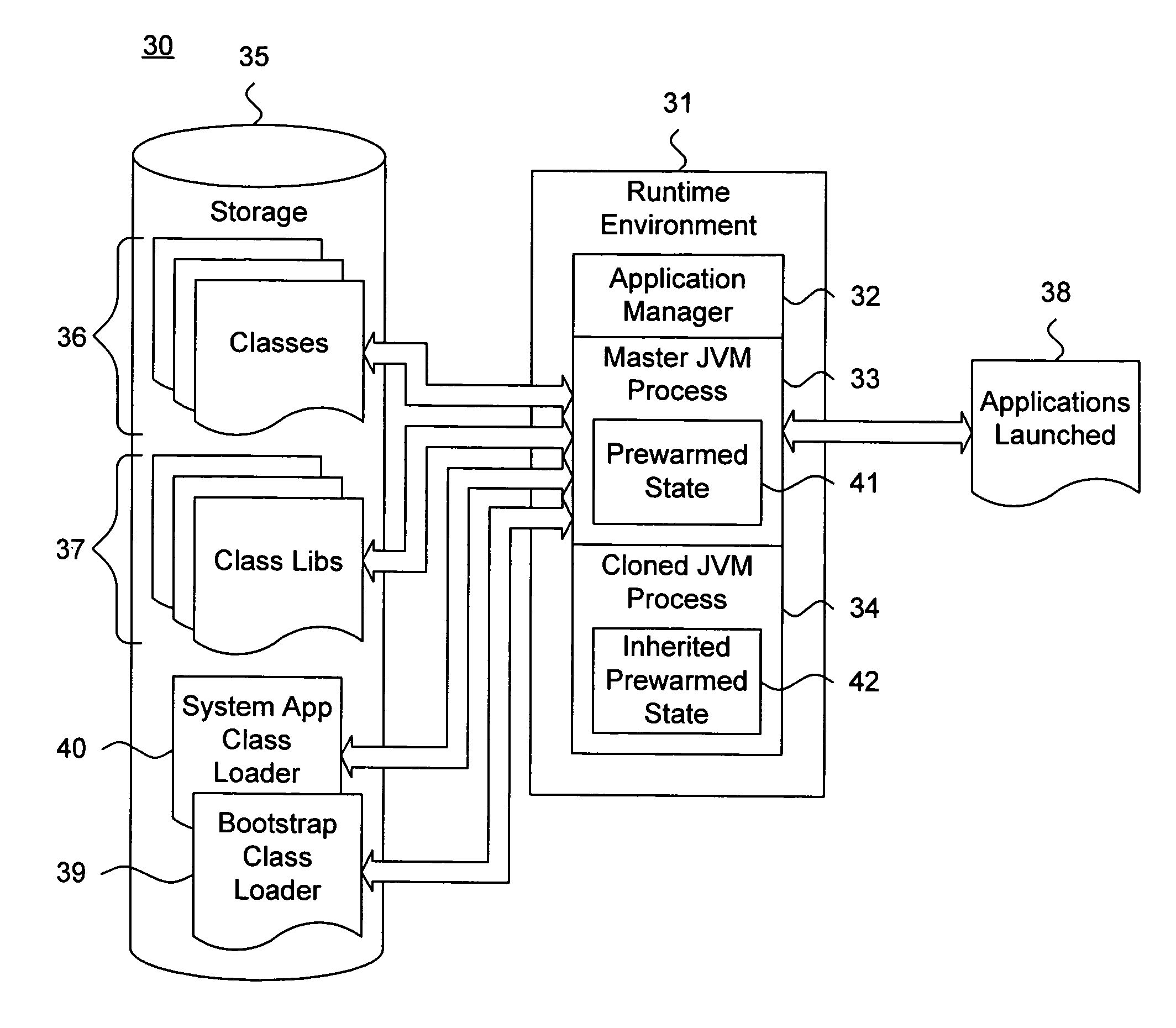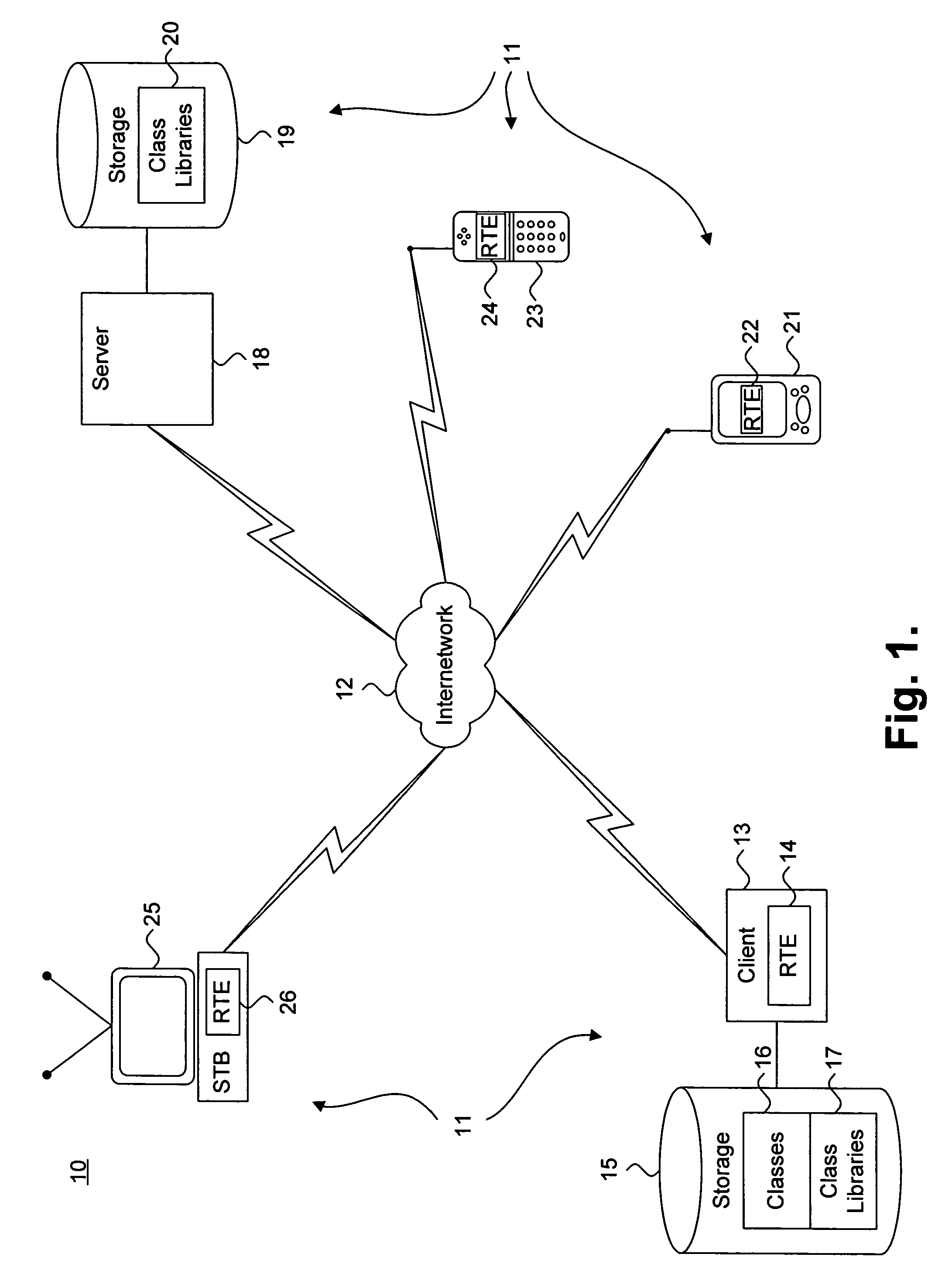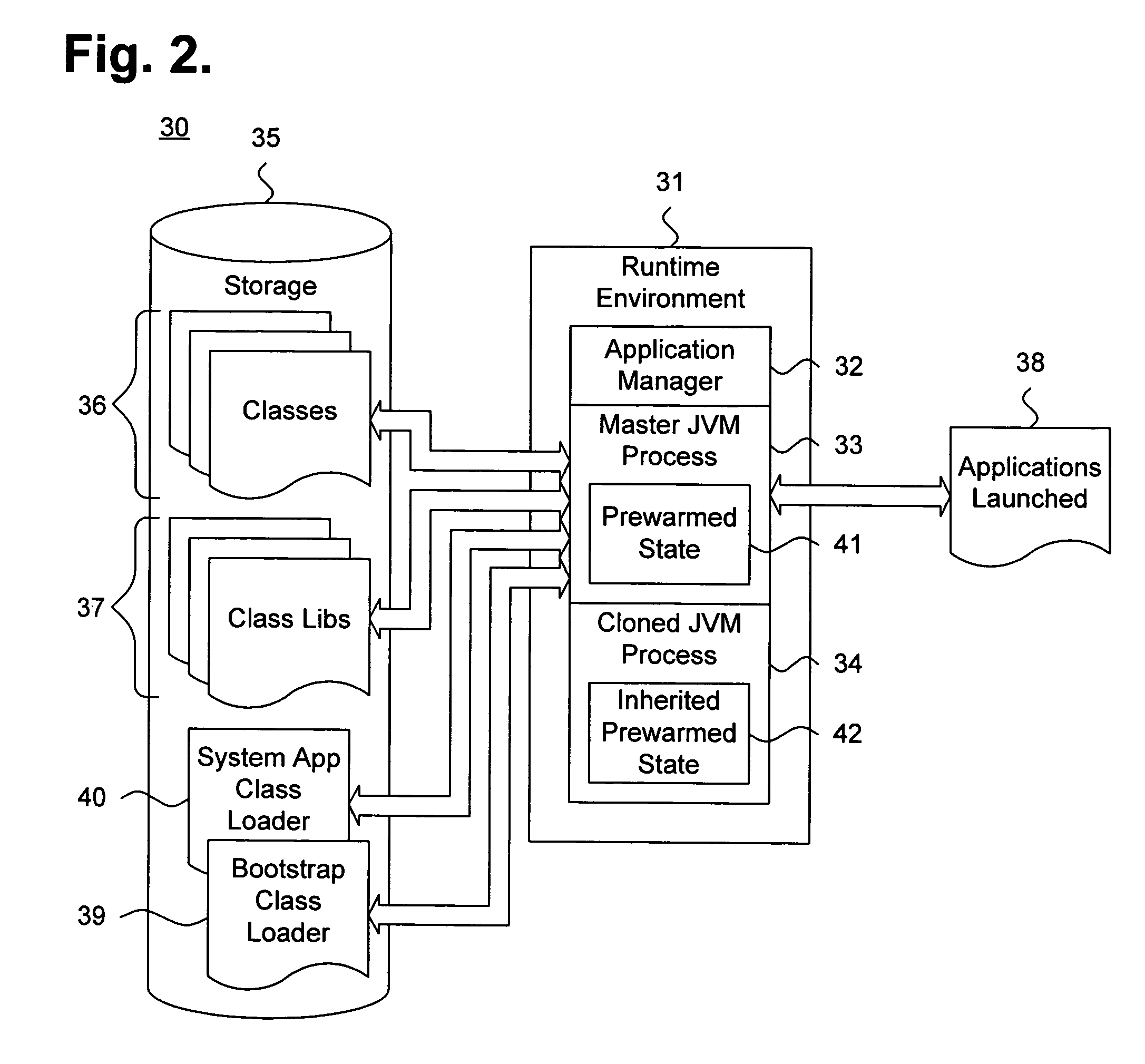System and method for dynamic preloading of classes through memory space cloning of a master runtime system process
a runtime system and memory space technology, applied in the field of class preloading, can solve the problems of slow or inconsistent application performance, intolerant of performance compromises, and inability to achieve a high degree of automation, so as to avoid affecting application performance and fast user application initialization
- Summary
- Abstract
- Description
- Claims
- Application Information
AI Technical Summary
Benefits of technology
Problems solved by technology
Method used
Image
Examples
Embodiment Construction
System Overview
[0023]FIG. 1 is a functional block diagram 10 showing, by way of example, runtime environments (RTEs) 14, 22, 24, 26 implemented on a plurality of heterogeneous devices 11. Each heterogeneous device 11 provides a managed code platform, such as the Java operating environment, executing in a runtime environment 14, 22, 24, 26, as further described below with reference to FIG. 2. The heterogeneous devices 11 include, nonexclusively, a client computer system 13, such as a desktop or laptop computer system. Each client 13 is operatively coupled to a storage device 15 and maintains a set of classes 16 and class libraries 17, which respectively define code modules that specify data structures and sets of methods that operate on the data, and shareable collections of the modules. The heterogeneous devices 11 also include portable computing devices, including personal data assistants 21, and consumer devices, such as cellular telephones 23 and set top boxes (STB) 25. Finally, ...
PUM
 Login to View More
Login to View More Abstract
Description
Claims
Application Information
 Login to View More
Login to View More - R&D
- Intellectual Property
- Life Sciences
- Materials
- Tech Scout
- Unparalleled Data Quality
- Higher Quality Content
- 60% Fewer Hallucinations
Browse by: Latest US Patents, China's latest patents, Technical Efficacy Thesaurus, Application Domain, Technology Topic, Popular Technical Reports.
© 2025 PatSnap. All rights reserved.Legal|Privacy policy|Modern Slavery Act Transparency Statement|Sitemap|About US| Contact US: help@patsnap.com



